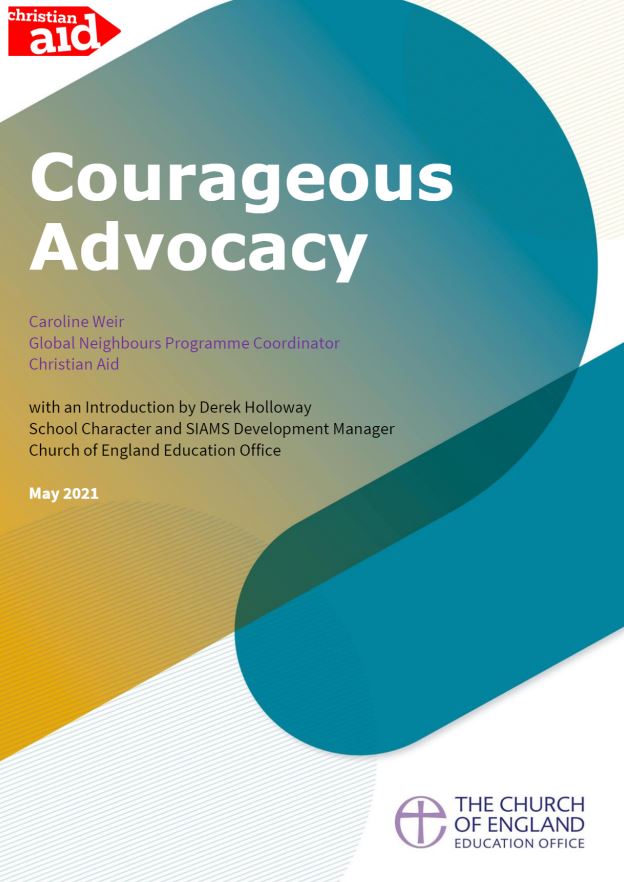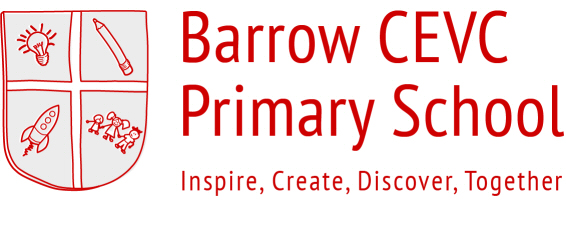

I have come that they may have life and have it to the full – John 10:10

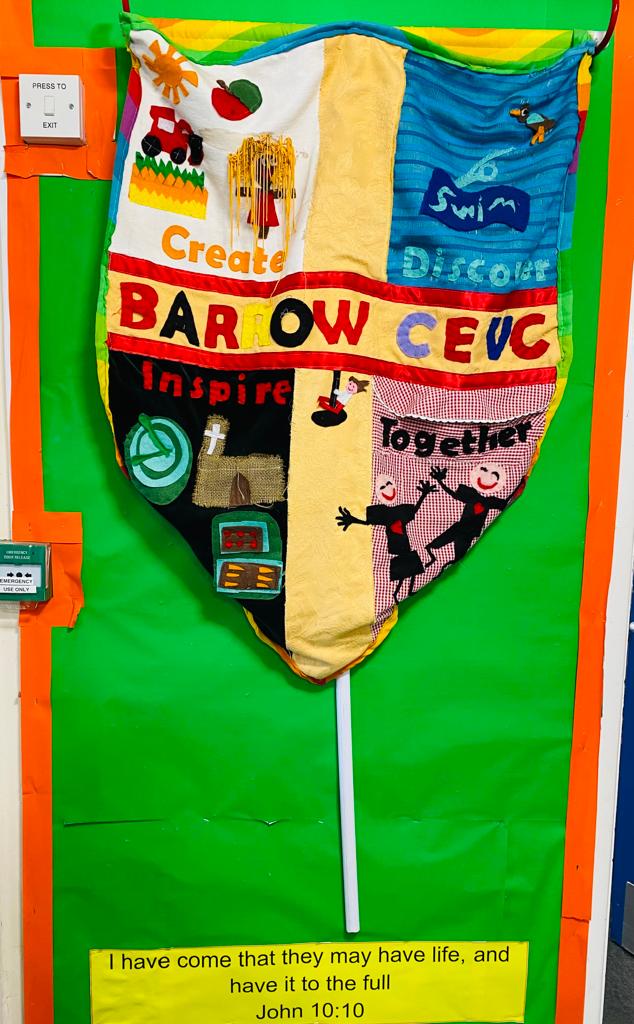
1. BIBLICAL
The school’s values are based on the teachings of Jesus as found in the Bible – focusing on 12 core values (Compassion, Thankfulness, Courage, Trust, Generosity, ). Through Collective Worship and R.E. teaching, children will learn about the life and teachings of Jesus, and how these affect the lives of those who follow them. They will find out what the Bible means to Christians, and reflect on what it means to them.
2. LITURGICAL PATTERN
The Collective Worship times are structured to follow the ‘liturgy’ or pattern of Church of England services. The four elements are Gathering, Engaging, Responding and Sending, and bring the school community together in a time of reflection and celebration with messages from the Bible, prayer and reflection time and singing. We greet each other with phrases such as ‘The Peace of the Lord be with you/ and also with you’ to familiarise the children with language and form they might here in a church setting.
3. EUCHARIST (Communion)
Once a year, members of the school community will be invited together to share a Communion Service (the sharing of bread and wine) to celebrate their shared beliefs and purpose. This will be a special time of fellowship and ‘coming together’ explored in a very creative and exciting way.
4. SEASONAL
The school follows the Church of England calendar of events including;
Harvest, Christmas, Easter, Epiphany, Pentecost, Lent, Ascension Day and Patron Saints feast days.
These are explored and celebrated in really creative, interactive and exciting ways through all areas of the curriculum, and often staged as whole school theme days with competitions and performances.
5. SYMBOLIC
Symbols are an important visual aid to reflecting on our core values. You will see crosses and other Christian symbols at key places around the school building, as well as display boards and reflective prayer areas.
6. ECUMENICAL
Barrow CEVC School aims to work together with a range of local churches, including All Saints and the West Suffolk Vineyard Church. We welcome clergy from these churches to come in to lead assemblies and speak to the children about local church events such as Holiday Clubs and Bible Clubs.
7. DIVERSE
The Anglican Church is diverse and world-wide and is a fantastic vehicle for exploring Global Links. At St. Mary’s, children will have a chance to explore what it means to be a Christian in different countries, cultures and contexts through projects such as the Kagera project.
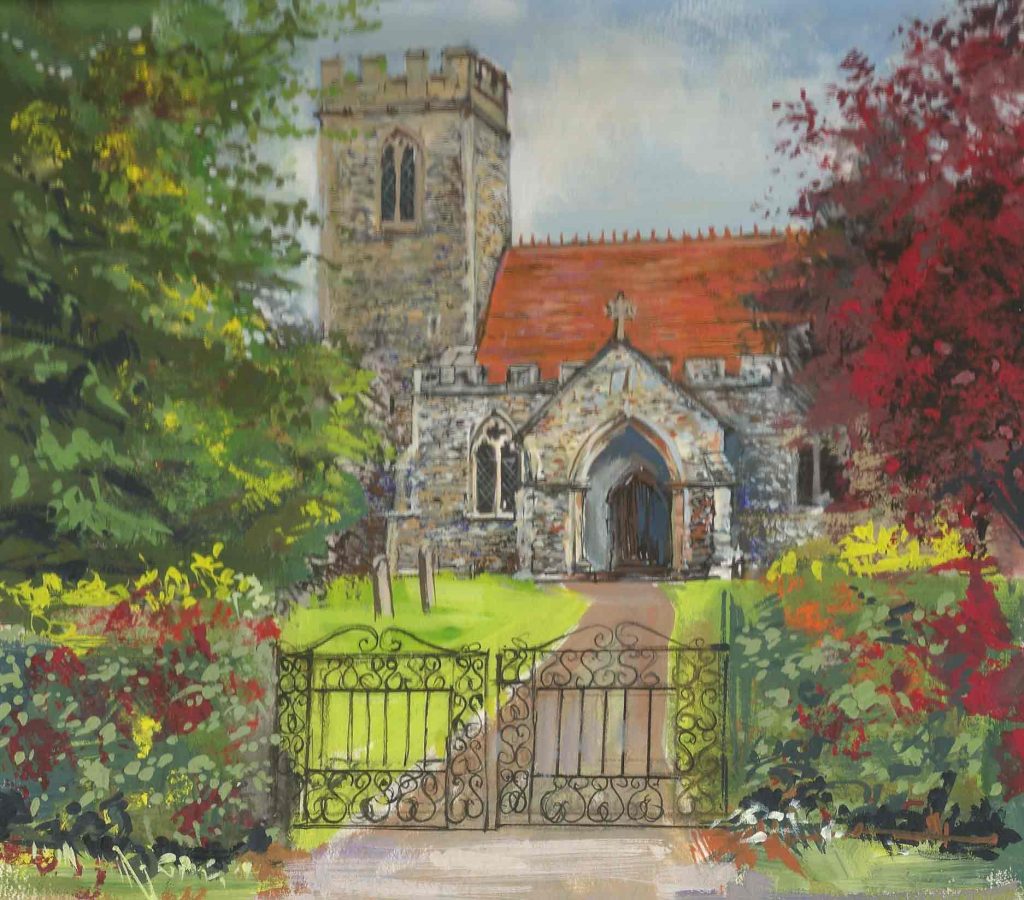
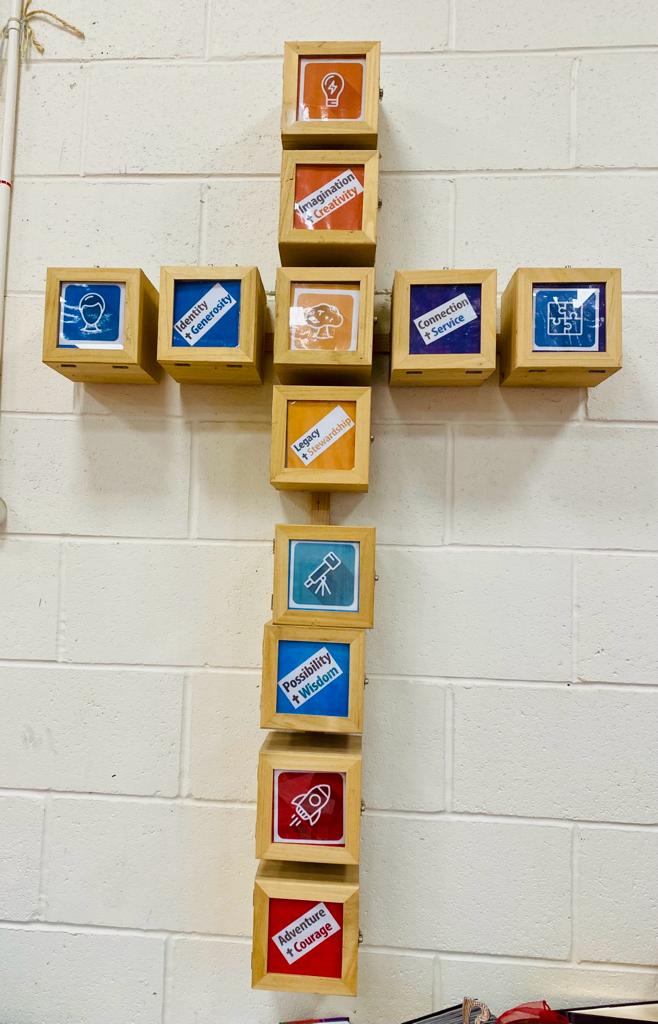
It aims to give pupils and school staff alike the opportunity to:
Collective Worship is legally required to take place every school day and ‘shall be wholly or mainly of a broadly Christian character’ (1988 Education Act).
http://www.churchofengland.org/education/national-society/teaching-learning/collective-worship.aspx
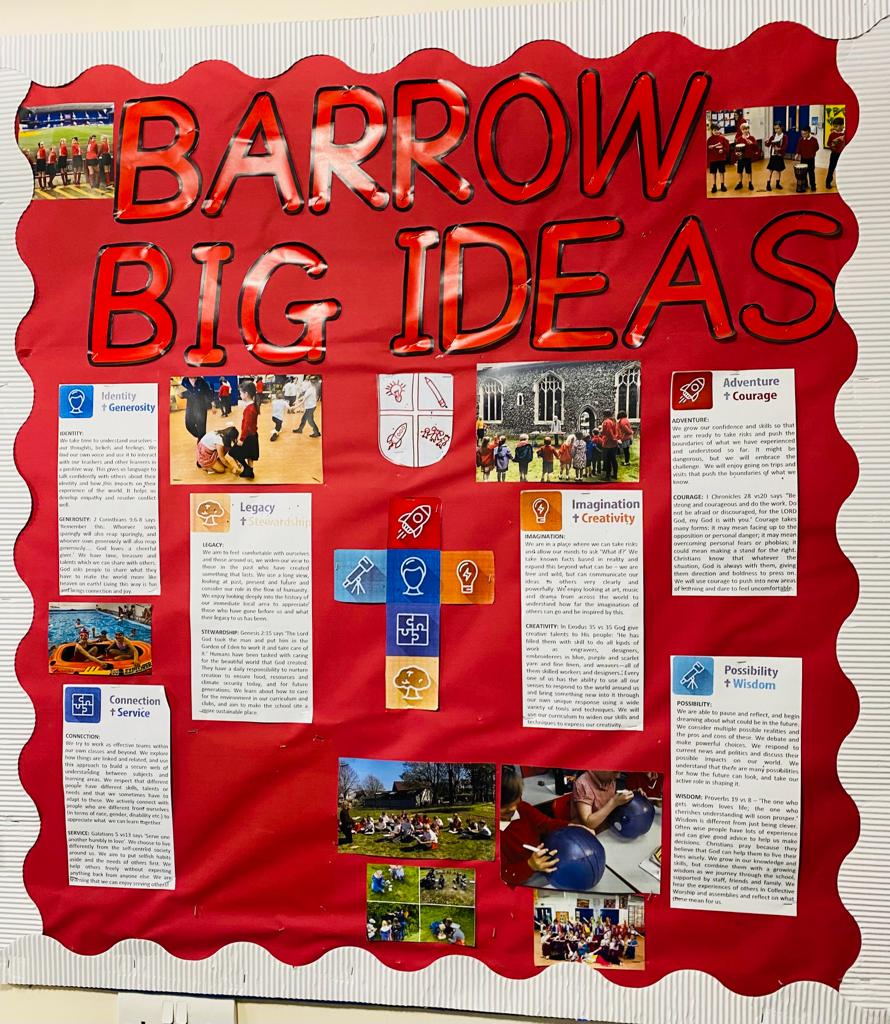
A s a Church of England School, Collective Worship is at the heart of school life. It happens every day, in various different forms, which give all children an opportunity to learn, celebrate and respond to Christian Values drawn from the Bible. We use them as a forum to explore our ‘Barrow Big Ideas’ which change every half term from many different perspectives, particularly growing in understanding of the Christian faith and its expressions.
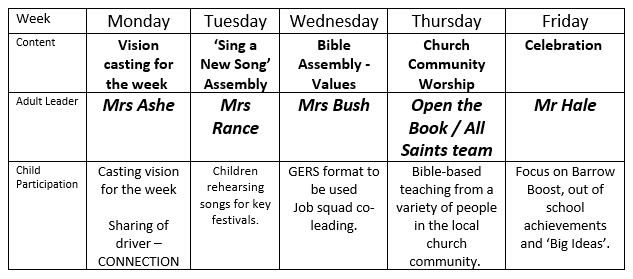
Barrow’s Collective worship is based on the liturgy or pattern of Church of England Services. This helps staff and children to become familiar with its language and traditions so when they visit the church building, they can understand and take part in their services in a meaningful way.
Collective Worship is set up so that all children and adults, of any faith or none, are invited to find out what Christians believe about God, the world and themselves, and have reflection time wondering about big questions of life. Staff and pupils alike value the time of quiet and stillness as a way to bring the community together.
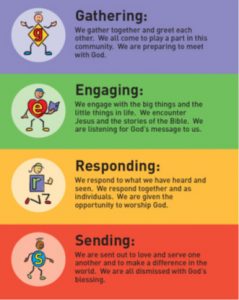
We are judged as an Outstanding Church School by SIAMS and Beliefs and Values (R.E.). is a key part of the values-based Curriculum.
Pupils are given the opportunity to explore the practices and beliefs of those from the Jewish faith, Islam, Buddhism and Sikhism as well as Christianity. Key strands are explored across all faiths to find the similarities and differences between them – for example, Beliefs and Questions, Special Books, Leaders and Teachers and others.
Religious Education (Beliefs and Values) at Barrow CEVC Primary School
This year we have had an update to the Emmanuel Scheme of work, taking into account a new way to engage with the RE Syllabus;
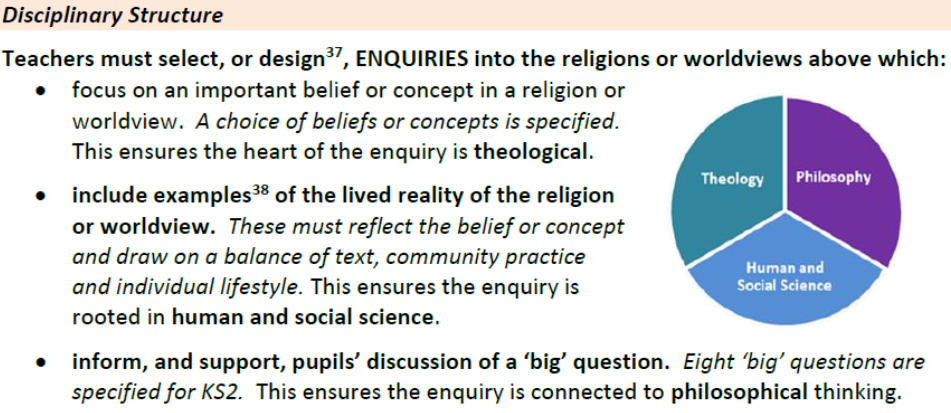
We are excited about the depth and breadth this is going to bring to our learning, and are looking forward to becoming Theologians, Social Scientists and Philosophers!
